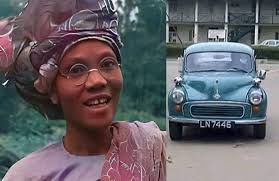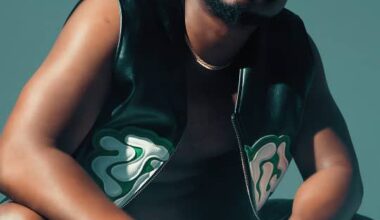In Nigeria, it’s common to hear phrases like “I want to barb my hair” or “Where do you barber your hair?” But have you ever stopped to wonder which of the two is correct? Is it “barb” or “barber”? And how did these variations come to be so widespread in Nigerian conversations?
Let’s dive into this interesting quirk of Nigerian English and untangle the grammar, context, and culture behind it.
The Origin of the Confusion
In standard English, “barber” is a noun, referring to a person whose job is cutting men’s hair and sometimes trimming beards.
Example:
“I’m going to the barber this afternoon.”
The verb form of this word – “to cut hair” – is not “barber” or “barb”, but simply “cut”, as in:
“I want to cut my hair.”
However, in Nigerian English, the noun “barber” has been converted into a verb, creating the widely accepted local usage:
“I want to barb my hair.”
This is a classic example of how language evolves differently in various cultural and linguistic settings.
So, Is “Barb” a Real Word?
In standard English, the word “barb” does exist — but not in the context of haircuts.
Barb (noun) usually means:
- A sharp projection, like on a fishhook or arrow
- A cutting remark or insult
- Part of the structure of feathers
But in Nigerian English, “barb” is a localized verb meaning to get a haircut, especially at a barbershop.
So while “barb your hair” isn’t technically correct in formal English, it is widely understood and accepted across Nigeria and even parts of West Africa. It’s an example of how Nigerian Pidgin and English have blended to create new terms that suit everyday conversations.
READ ALSO: What Is the Meaning of the Word "Aboki"?
“Barber Your Hair” – Is That Correct?
The phrase “barber your hair” might seem more accurate to some, since “barber” refers to the professional. However, using “barber” as a verb is not grammatically correct in standard English either.
Saying “I want to barber my hair” sounds off to native English speakers outside of Nigeria. In proper English usage, barber is rarely (if ever) used as a verb. The correct expression would be:
- “I want to get a haircut.”
- “I need to cut my hair.”
- “I’m going to the barbershop.”
Why Does “Barb” Work in Nigerian English?
Languages are flexible and always evolving. Nigerian English is heavily influenced by:
- Pidgin English
- Indigenous languages
- Creative local usage
Over time, “barb” became the convenient and widely used verb for cutting hair. Its popularity is so strong that it’s often included in memes, songs, jokes, and casual chats.
You’d hear:
- “I go barb later today.”
- “Your guy don barb fresh cut.”
- “Who barb you?”
These expressions, while non-standard, reflect the rich and dynamic nature of Nigerian linguistics.
Should You Use “Barb” or Not?
It depends on your audience.
Use “barb” if you’re speaking informally with Nigerians or writing for a Nigerian audience. It’s relatable and accepted in local settings.
Avoid “barb” in formal writing, international communications, or official contexts. In these cases, it’s better to say “get a haircut” or “cut your hair.”
Conclusion
Whether you say “barb your hair” or “cut your hair”, the most important thing is being understood in context. Language is not fixed; it shifts to match culture, identity, and daily experiences.
In Nigerian English, “barb” is more than just a word — it’s a part of our unique linguistic identity. So go ahead and barb your hair… just know when and where to say it!





